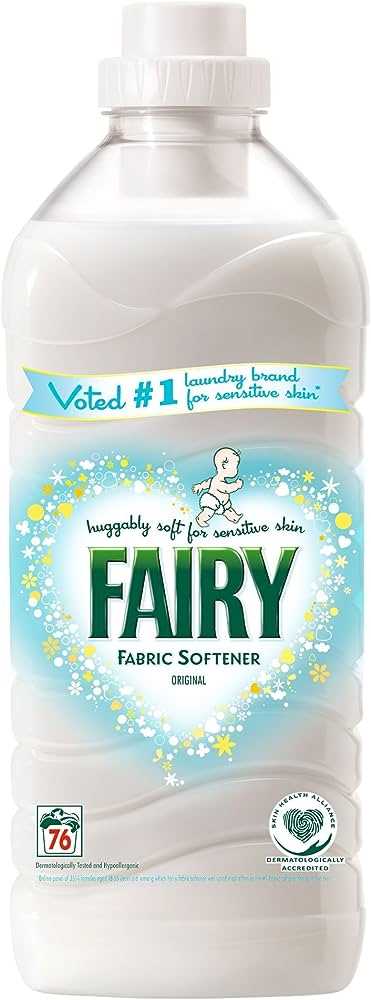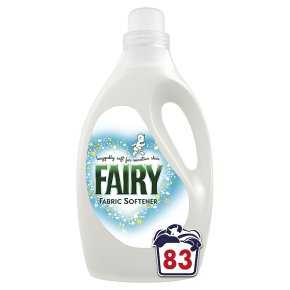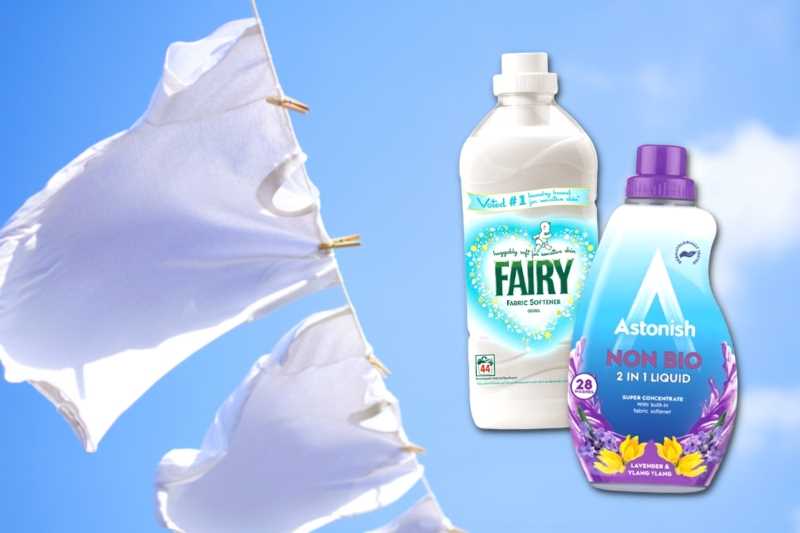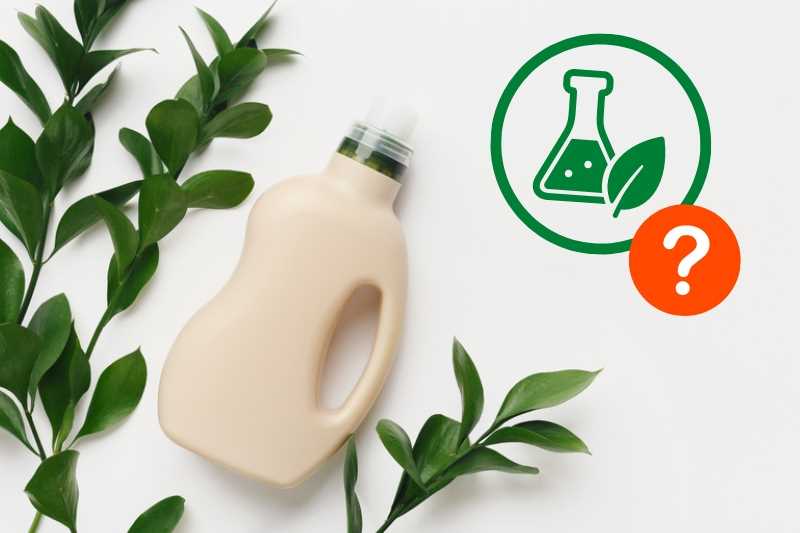




When it comes to choosing the right fabric softener for your laundry, many people wonder if it is non-bio. Non-bio products are specially formulated to be gentle on sensitive skin, making them a popular choice for those with allergies or skin conditions. In this article, we will explore the truth behind fabric softeners and whether or not they are non-bio.
Fabric softeners are designed to make your clothes feel softer, reduce static electricity, and improve their overall appearance. They work by coating the fabric fibers with a thin layer of chemicals that help to lubricate and release wrinkles. However, not all fabric softeners are created equal, and some may contain ingredients that can irritate sensitive skin.
Non-bio fabric softeners, on the other hand, are specially formulated to be hypoallergenic and gentle on the skin. They are free from enzymes, dyes, and other potentially irritating substances. This makes them a suitable choice for individuals with sensitive skin or allergies. Non-bio fabric softeners are often recommended for babies, young children, and people with eczema or dermatitis.
It is important to note that not all fabric softeners marketed as non-bio are created equal. Some manufacturers may use the term “non-bio” as a marketing ploy without actually meeting the criteria for being gentle on sensitive skin. Therefore, it is essential to read the product labels and look for certifications or endorsements from reputable organizations.
Our website name is dedicated to providing you with accurate and reliable information on various household products, including fabric softeners. We believe that everyone deserves to have access to quality and trustworthy information when making purchasing decisions. Whether you are looking for non-bio fabric softeners or other laundry products, we are here to help you make an informed choice.
What is Fabric Softener? It’s Not Just for Softening!
Fabric softener is a laundry product that is used to make clothes feel softer and less staticky. It is typically used in the rinse cycle of the washing machine and works by coating the fabric fibers with a thin layer of chemicals, which helps to reduce friction between the fibers and make the clothes feel softer to the touch.
But fabric softener is not just for softening! It offers a range of other benefits that can help keep your clothes looking and feeling their best.
1. Reduces Wrinkles
Fabric softener can help to reduce wrinkles in your clothes, making them easier to iron or eliminating the need for ironing altogether. The chemicals in fabric softener help relax the fabric fibers, making them more resistant to wrinkling.
2. Improves Color Retention
Using fabric softener can help to preserve the color of your clothes. The chemicals in fabric softener help to protect the fabric dyes from fading, ensuring that your clothes stay vibrant and look new for longer.
3. Decreases Drying Time
Fabric softener can also help to decrease drying time. The chemicals in fabric softener help to reduce the surface tension of the water in your clothes, allowing them to dry more quickly. This not only saves time but also reduces energy consumption.
4. Adds a Fresh Scent
One of the most well-known benefits of fabric softener is its ability to add a fresh scent to your laundry. Fabric softener comes in a variety of fragrances, ranging from floral to fruity, and can leave your clothes smelling clean and inviting.
5. Reduces Static Cling

Static cling can be a nuisance, especially during the winter months. Fabric softener helps to reduce static cling by neutralizing electric charges in the fabric, preventing clothes from sticking together and clinging to your body.
6. Enhances Absorbency
If you have towels or other absorbent fabrics, using fabric softener can help enhance their absorbency. The chemicals in fabric softener help to remove any residue or build-up that may be present on the fabric fibers, allowing them to better absorb moisture.
So, next time you reach for fabric softener, remember that it’s not just for softening. It offers a range of benefits that can help keep your clothes looking and feeling their best!
Is Fabric Softener Non-Bio? Demystifying the Truth
When it comes to fabric softener, there is often confusion surrounding whether it is non-bio or not. Non-bio products are typically gentler on the skin and safer for those with sensitive skin or allergies. So, is fabric softener non-bio? Let’s dive into the truth and debunk the myths.
The Difference Between Bio and Non-Bio

To understand whether fabric softener is non-bio, we need to first understand the difference between bio and non-bio products. Bio, short for biological, refers to products that contain enzymes derived from living organisms. These enzymes are capable of breaking down tough stains and odors. Non-bio, on the other hand, does not contain these enzymes and is considered milder and more suitable for sensitive skin.
Fabric Softener Ingredients
Most fabric softeners available in the market today are considered non-bio. They are formulated to be gentle on the skin and do not typically contain enzymes or other harsh chemicals. Instead, they use a combination of ingredients such as emollients, fragrances, and softening agents to make clothes feel softer and smell fresh. However, it’s always a good idea to check the label or product description to ensure that the fabric softener you are using is indeed non-bio.
Choosing the Right Fabric Softener
When selecting a fabric softener, it’s important to consider your specific needs and preferences. If you have sensitive skin or allergies, opting for a non-bio fabric softener is the safer choice. Look for products that are labeled as “non-bio” or “suitable for sensitive skin”. Additionally, be mindful of any added fragrances or allergens that could potentially irritate your skin. Testing the product on a small area of fabric before using it on all your clothes is always recommended.
Conclusion
In conclusion, fabric softener can be non-bio, but it’s crucial to check the label or product description to ensure it is suitable for your needs. Non-bio fabric softeners are generally milder and gentler on the skin, making them a better choice for those with sensitive skin or allergies. By choosing the right fabric softener, you can enjoy softer and fresher-smelling clothes without any worries about skin irritation.
The Benefits of Using Fabric Softener in Your Laundry Routine
- Softer and smoother fabrics: Fabric softener helps to reduce stiffness in clothes, making them feel softer and more comfortable against the skin. This is especially beneficial for towels, bed linens, and clothing items that come into direct contact with the body.
- Improved scent: Fabric softener adds a pleasant fragrance to your laundry, leaving your clothes smelling fresh and clean. This can help eliminate any lingering odors and keep your clothes smelling great for longer periods of time.
- Reduced static cling: Fabric softeners work by coating the fibers of the fabric, which helps to reduce static cling. This makes it easier to fold and wear your clothes without them sticking together or clinging to your body.
- Easier ironing: Using fabric softener can help to relax the fibers in your clothes, making them easier to iron. This can save you time and effort during the ironing process.
- Longer-lasting clothes: Fabric softener helps to reduce wear and tear on your clothes, leading to longer-lasting garments. The softening agents in the fabric softener help to protect the fibers from friction and damage, extending the life of your favorite clothes.
In conclusion, incorporating fabric softener into your laundry routine can have numerous benefits. From softer and smoother fabrics to improved scent and reduced static cling, fabric softener can enhance the overall quality and longevity of your clothes. Consider adding fabric softener to your next load of laundry to experience these advantages for yourself!
How Fabric Softener Can Help Preserve Your Clothes
When it comes to taking care of your clothes, fabric softener can play a crucial role in preserving their quality and extending their lifespan. Here are a few reasons why fabric softener can be beneficial:
- Reduces friction: Fabric softener helps to reduce friction between clothes during the washing and drying process. This can prevent the fibers from rubbing against each other too much, therefore reducing wear and tear.
- Prevents static: One common issue many people face when doing laundry is static electricity in their clothes. Fabric softener can help to eliminate static cling, making clothes easier to wear and less likely to attract lint and pet hair.
- Keeps clothes soft: Fabric softener works by coating the fibers of the fabric, making them feel softer to the touch. This can be especially beneficial for materials like towels and bedsheets, ensuring they remain comfortable and cozy after each wash.
- Improves drying time: By reducing friction, fabric softener can also help clothes dry faster. This can be advantageous as it not only saves time but also reduces energy consumption during the drying process.
- Preserves colors: Certain fabric softeners are specifically formulated to help preserve the colors of your clothes. They can reduce fading and help to retain the vibrancy of your garments, keeping them looking fresh and new for longer.
- Protects against wrinkles: Fabric softener helps to relax the fibers in your clothes, which can help prevent wrinkles from setting in during the washing and drying process. This means less time spent ironing and fewer chances of damaging delicate fabrics through excessive ironing.
In conclusion, fabric softener can be an important tool in maintaining the quality and longevity of your clothes. By reducing friction, preventing static, keeping clothes soft, improving drying time, preserving colors, and protecting against wrinkles, fabric softener can help ensure your favorite garments stay in great condition for years to come.
Choosing the Right Fabric Softener for Your Needs
When it comes to choosing a fabric softener, there are a few factors to consider. Whether you prefer a non-bio or bio fabric softener, here are some tips to help you make the right choice for your needs.
Fabric Types
Consider the type of fabric you typically wash. Some fabric softeners are designed specifically for certain fabrics. For example, if you frequently wash delicate fabrics such as silk or cashmere, opt for a fabric softener that is suitable for these types of materials.
Scent Preferences
Think about the scents you enjoy. Fabric softeners come in a variety of fragrances, so choose one that aligns with your preferences. Whether you prefer floral, fruity, or more subtle scents, there is a fabric softener out there for you.
Skin Sensitivities

If you or your family members have sensitive skin, consider a fabric softener that is hypoallergenic or specifically formulated for sensitive skin. These options are often free from added dyes and perfumes that can cause irritation.
Environmental Impact

If reducing your environmental impact is important to you, look for fabric softeners that are labeled as eco-friendly or biodegradable. These options are typically made with natural ingredients and have minimal impact on the environment.
Cost Considerations
Take your budget into account when choosing a fabric softener. There are options available at various price points, so you can find one that fits within your budget without sacrificing quality.
Recommended Options
Here are a few recommendations for fabric softeners:
- Brand A: This fabric softener is great for sensitive skin and has a refreshing floral scent.
- Brand B: Made with biodegradable ingredients, this fabric softener is eco-friendly and perfect for those with environmental concerns.
- Brand C: If you have delicate fabrics, this fabric softener is specifically formulated to protect and soften them without causing damage.
Ultimately, the right fabric softener for you will depend on your personal preferences and needs. Consider the factors mentioned above and choose a fabric softener that suits your unique requirements.
Common Misconceptions About Fabric Softener Debunked
There are several misconceptions surrounding fabric softener that have been widely circulated. However, it is important to separate fact from fiction when it comes to using fabric softener. Here are some common misconceptions about fabric softener debunked:
-
Fabric softener is non-bio: One of the main misconceptions about fabric softener is that it is non-biological. However, this is not true. Fabric softener can be both bio and non-bio. The term “non-bio” typically refers to laundry detergents that do not contain enzymes, which can be a concern for individuals with sensitive skin or allergies. Fabric softener, on the other hand, is used to enhance the softness and fragrance of clothes and does not contain enzymes or other biological agents.
-
Fabric softener is harmful to the environment: Another common misconception is that fabric softener is harmful to the environment. While it is true that some fabric softeners may contain chemicals that are not eco-friendly, there are also eco-friendly and biodegradable options available. It is important to read the labels and choose fabric softeners that are labeled as environmentally friendly or biodegradable if you are concerned about the environmental impact.
-
Fabric softener reduces absorbency: Many people believe that using fabric softener can reduce the absorbency of towels and other absorbent fabrics. However, this is not entirely true. While fabric softener can leave a residue on fabrics if not used correctly, leading to a temporary decrease in absorbency, this can be easily resolved by washing the fabrics without fabric softener a few times. It is essential to follow the manufacturer’s instructions and use the recommended amount of fabric softener to avoid any issues.
-
Fabric softener is only for clothes: Some individuals think that fabric softener is only meant for use on clothes. However, fabric softener can also be used on other fabrics such as bedsheets, curtains, and towels. Using fabric softener on these items can help to maintain their softness and freshness, enhancing your overall comfort.
-
Fabric softener is necessary: While fabric softener can provide a pleasant fragrance and softness to clothes, it is not necessary. Many people choose not to use fabric softener and still have perfectly soft and fresh-smelling clothes. The choice to use fabric softener ultimately depends on personal preference and individual needs.
It is important to separate fact from fiction when it comes to using fabric softener. By understanding the truth behind these common misconceptions, you can make an informed decision about whether or not to use fabric softener in your laundry routine.
FAQ
Is fabric softener non-bio safe for sensitive skin?
Yes, fabric softener non-bio is safe for sensitive skin. It is specially formulated to be gentle on the skin and does not contain any harsh chemicals that can cause irritation.
What is the difference between fabric softener non-bio and bio?
The main difference between fabric softener non-bio and bio is that non-bio does not contain enzymes, while bio does. Enzymes in bio fabric softeners help to break down stains and dirt, making them more effective for stain removal. However, non-bio fabric softener is generally considered to be gentler and safer for sensitive skin.
Can I use fabric softener non-bio on baby clothes?
Yes, fabric softener non-bio is safe to use on baby clothes. It is specially formulated to be gentle on delicate fabrics and is suitable for baby’s sensitive skin. However, it is recommended to use a fragrance-free fabric softener non-bio to minimize any potential irritation.
Does fabric softener non-bio reduce static cling?
Yes, fabric softener non-bio helps to reduce static cling in fabrics. It coats the fabric fibers with a lubricating layer, which helps to prevent the buildup of static electricity. This can be particularly beneficial in colder, drier climates or when using fabrics that are more prone to static.
Is fabric softener non-bio better for the environment?
Fabric softener non-bio is generally considered to be better for the environment compared to its bio counterparts. Non-bio fabric softeners are typically biodegradable and contain fewer chemicals. However, it is still important to follow the proper guidelines for disposing of fabric softener and consider more environmentally friendly alternatives, such as using natural fabric softeners or dryer balls.
Is fabric softener non-bio?
Fabric softener can be both bio and non-bio. Bio fabric softeners contain enzymes that help break down stains and dirt on clothes, while non-bio fabric softeners are formulated without enzymes. It’s important to read the label or product description to determine if a fabric softener is non-bio or bio.













